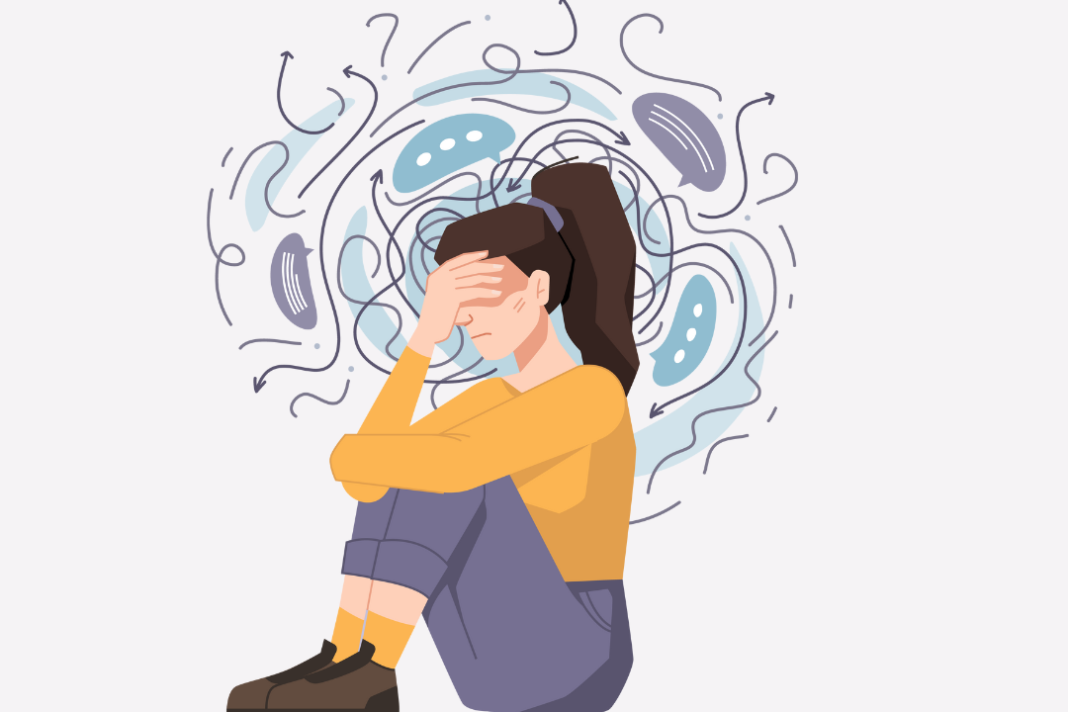In our fast-paced world, stress has become a common yet elusive adversary, often weaving itself into our daily lives with a subtlety that makes it easy to overlook.
Dubbed the ‘silent disruptor’, stress can manifest in myriad forms, many of which are so understated that they often slip under our radar.
The trickiness of stress lies in its ability to mimic or trigger various physical and psychological symptoms, making it a chameleon of sorts in the realm of health concerns.
Understanding these symptoms of stress is not just about symptom recognition; it’s about nurturing an awareness of how our bodies and minds react to the pressures of modern life. This vigilance is crucial, as prolonged exposure to stress can have far-reaching consequences, leading to more serious health issues that affect our mental, emotional, and physical well-being.
This article delves into 12 lesser-known but significant signs of stress. These indicators range from changes in sleep patterns to unexpected physical responses, each carrying a message worth heeding. By shedding light on these understated signals, we aim to empower you with knowledge that can help you stay vigilant and proactive in managing stress.
Recognizing these signs early is a step towards maintaining balance and health amid life’s inevitable challenges. Let’s embark on this journey of understanding and awareness, exploring each sign and its implications and learning how to respond to the subtle cues our bodies and minds give us.
1. Changes in Sleep Patterns
Altered sleep patterns are a classic yet often overlooked symptom of stress. This can manifest in various forms, from the inability to fall asleep (insomnia) to finding yourself sleeping more than usual (hypersomnia).
Stress may play a role if you observe that your sleep schedule is irregular without apparent cause. Paying attention to such changes is important, as consistent sleep patterns are crucial for overall health.
2. Unexplained Muscle Pain or Tension
Experiencing muscle tension or pain is a common physical sign of stress. This discomfort is often felt in the neck, shoulders, or back areas.
If these aches are recurrent and can’t be attributed to physical exertion or other medical conditions, they might be signalling underlying stress.
Acknowledging and addressing this symptom is important for both mental and physical well-being.
3. Frequent Colds or Infections
A compromised immune system, leading to frequent colds or infections, can be a sign of stress.
If you catch illnesses more often than normal, it could be a red flag that your stress levels impact your body’s ability to fend off infections. This underlines the interconnectedness of mental and physical health.
4. Changes in Appetite
Stress can significantly impact your appetite, either suppressing it or causing an increase in food intake.
If you notice sudden changes in your eating habits – whether you’re eating less or more without a clear reason – it could indicate stress. Monitoring these changes is crucial as they can lead to further health complications if not addressed.
5. Digestive Issues
Stress can disrupt the functioning of your digestive system, leading to symptoms such as stomachaches, diarrhoea, or constipation.
These issues, especially if persistent, might be related to stress. The gut-brain connection plays a significant role, as stress can affect gut health and vice versa.
6. Increased Reliance on Substances
An increase in the consumption of substances like alcohol, caffeine, or others can be a tell-tale sign of stress.
This behaviour often reflects an attempt to manage or cope with the symptoms of stress. Recognizing this pattern is important as it can lead to dependency and additional health issues.
7. Difficulty Concentrating
Stress can lead to a scattered focus, making it more challenging to concentrate and complete tasks.
This mental fog is a subtle yet telling sign of stress. It could be worth examining your stress levels if you’re finding it hard to focus or keep your mind on tasks.
8. Mood Swings or Irritability
Experiencing unexplained mood swings or increased irritability can be a direct effect of stress.
If you have abrupt emotional responses or feel more irritable than usual, stress could influence your emotional state. Understanding this can help in managing your responses and seeking appropriate stress-relief methods.
9. Hair Loss or Graying
Stress can surprisingly affect your hair, potentially leading to hair loss or accelerated greying. These physical changes can act as indicators of stress.
While often overlooked, they reflect the profound impacts stress can have on our bodies.
10. Changes in Libido
A fluctuation in libido, either a decrease or an increase, can sometimes be attributed to stress. This is an often-overlooked sign that your body is coping with excess stress.
Awareness of such changes is vital as they can affect personal relationships and overall well-being.
11. Skin Problems
Stress can trigger or exacerbate skin conditions like acne, eczema, or psoriasis. Noticing changes in your skin health could be a cue to consider stress as a contributing factor.
The skin is often a reflection of internal health, including the impact of stress.
12. Nail Biting or Pacing
Physical manifestations such as nail biting, pacing, or engaging in other repetitive behaviours are also symptoms of stress that we need to consider.
These habits often develop unconsciously and serve as a physical outlet for stress relief. Recognizing and addressing them can be part of managing stress effectively.
The Bottom Line
Recognizing these 12 surprising symptoms of stress is the first step towards effective management.
If you identify with these symptoms, consider strategies to reduce stress, like mindfulness, exercise, or seeking professional help. By staying alert to these subtle signs, you can take timely action to maintain your well-being and prevent stress from escalating.
Remember, acknowledging stress is not a weakness; it’s a proactive step towards a healthier life.
